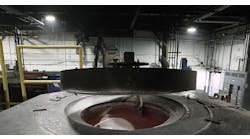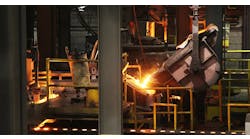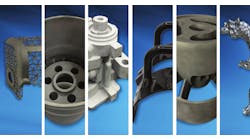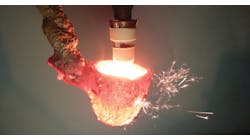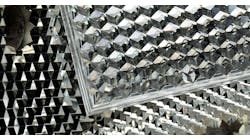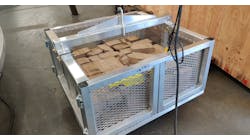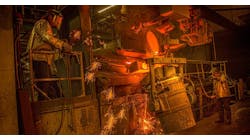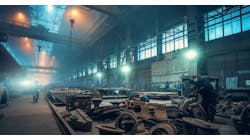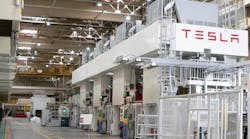Tesla Motors, the manufacturer of all-electric vehicles, faces seven workplace safety violations and fines totaling $89,900 following an accident last November at its assembly plant in Fremont, CA. Three workers were burned when a low-pressure diecasting machine discharged molten aluminum.
The workers endured second- and third-degree burns, and were hospitalized, though reports now indicate two of the three have returned to work. The third continues to recuperate at home.
The California Department of Industrial Relations (Cal-OSHA) issued six serious and one general violation, citing failure to conduct periodic inspections of the diecasting machine. Tesla reportedly will appeal the fine attending the citations.
The Fremont plant — formerly the NUMMI plant operated by that now defunct joint venture of General Motors and Toyota — has been producing the Tesla Model S electric lift-back since late 2010.
In addition to assembling vehicles, the plant produces a variety of component parts, including diecastings for structural elements and suspension components. In the low-pressure diecasting process, molten aluminum at up to 750°C is transferred from a furnace chamber under pressure through a riser tube, into the casting mold.
At the time of the accident, Tesla stated it had not located the cause of the system failure. “There was a failure in a low-pressure aluminum casting press,” according to Tesla spokeswoman Liz Jarvis-Shean, in November 2013. “Three employees were injured by hot metal from that press. We are making sure that they receive the best possible care.”
In its statement announcing the violations and fines, Cal-OSHA described the incident: “The employer did not conduct periodic inspections of use of a low-pressure diecasting machine, and allowed employees to continue using the machine after a safety interlock had been damaged, which resulted in injuries to three employees who were sprayed with molten metal.”
The statement continued: “The employer failed to release the air pressure used to inject molten aluminum into molds before servicing, did not maintain the machine in safe operating condition, and did not use a protective shield. The employer did not ensure that employees were trained in the hazards of using the machine, and did not ensure that employees used eye and face protection.”
In its response, Tesla emphasized that Cal-OSHA found no willful violations, and added that the Fremont plant’s accident rate is two times lower than the auto industry average.
“We take safety extremely seriously and have taken numerous steps to ensure nothing like it happens again,” according to the automaker’s statement. “We fully shut down the low-pressure diecasting operation and decommissioned the equipment. We provided the injured employees with dedicated HR support and maintained full pay beyond that provided by workers’ compensation.”
